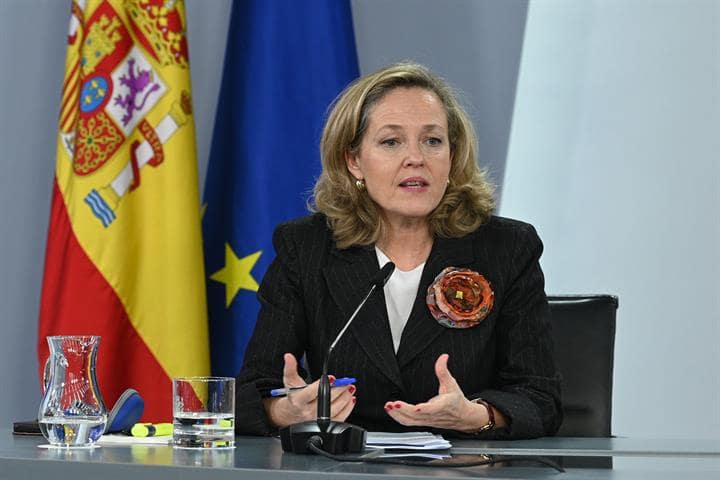The Spain Executive branch of government has approved a range of measures to make it easier for more than one million households to pay their mortgages in the face of rising interest rates. In addition, it has promoted the harmonization of the work of forest firefighters and environmental officers.
The Council of Ministers has adopted a package of measures aimed at families most affected by the rise in the Euribor – the benchmark interest rate for variable rate mortgages – caused by the war in Ukraine. More than one million households will be able to benefit from this protection, approximately one-third of those with variable rate mortgages, according to the First Vice-President of the Government of Spain and Minister for the Economy and Digital Transformation, Nadia Calviño.
The first vice-president stressed that the Euro is below historical levels, forecasts point to its stabilization, and there is no “macroeconomic risk” because the situation is very different from that of the 2007 crisis. Thanks to the support of the public sector and the reduction of credit, the financial position of households is “healthier, with more savings and less debt than at other times in our history, and all this reinforces the resilience, the strength of the Spanish economy in this context.”
Even so, said Calviño, some families, particularly those that are vulnerable or at risk of vulnerability, are feeling the effects of the rise in Euribor, which is why the Government has approved this range of measures that will provide citizens with a “menu of options” to cushion the mortgage burden and have more “certainty” about their level of spending in the medium and long term.
Relief measures for those with mortgages
The initiatives adopted act today in three ways, as explained by the first vice-president: they improve the treatment of vulnerable families; they create a new action framework for middle-class households at risk of vulnerability; and establish general measures applicable to all mortgages.
Most vulnerable debtors
Firstly, the current Code of Good Practice for vulnerable people with mortgages, those families with incomes under 25,200 euros per year and a 50% increase in the effort required, with homes of up to 300,000 euros, is reinforced. Specifically, the interest rate applicable during the five-year grace period for the payment of the mortgage’s principal is reduced from Euribor plus 0.25% to Euribor minus 0.10%.
In addition, it introduces the possibility of families requesting debt restructuring more than once; it doubles the deadline for requesting dation in payment of the habitual residence to 24 months and extends the deadline for requesting social rent in the home itself from the financial institution from 6 to 12 months, for a maximum amount of 3% of its value, by people in a situation of vulnerability who are subject to being evicted from their habitual residence.
As an example of the impact of these measures, Calviño detailed that a family with a standard mortgage of 120,000 euros and a monthly payment – after the revision of interest rates – of 524 euros will see their payment during the five-year grace period reduced by more than 50%, to 246 euros.
In addition, the scope of the Code is extended to cover more than 300,000 families. Thus, vulnerable households that have not experienced a 50% increase in their mortgage burden will also be eligible under the Code, in this case with a two-year grace period on the principal, a lower interest rate during this period and the possibility of extending the mortgage term by up to seven years.
Households with an income under 29,400 euros
Protection is extended to middle-class families at risk of vulnerability as a result of rapidly increasing mortgage burdens: the new Code of Good Practice will apply to households with an income of less than 3.5 times the Public Income Index (IPREM) – around 29,400 euros per year – whose mortgage payment is more than 30% of their income and who have experienced at least a 20% increase in their mortgage burden.
For these cases, financial institutions should offer the possibility of freezing the payment for 12 months, reducing the interest rate applicable to the deferred principal and extending the loan term up to seven years.
According to Calviño, this new catalogue of measures will allow up to 700,000 families to gradually adapt to the new interest rate scenario.
Additional measures
The approved initiatives include further reducing all costs to convert variable-rate mortgages to fixed rates and eliminating early repayment and conversion fees during 2023. In addition, the Bank of Spain will prepare a guide for people with a mortgage in difficulty, and the monitoring of the application of both codes will be reinforced.
As per public release, click here for more









